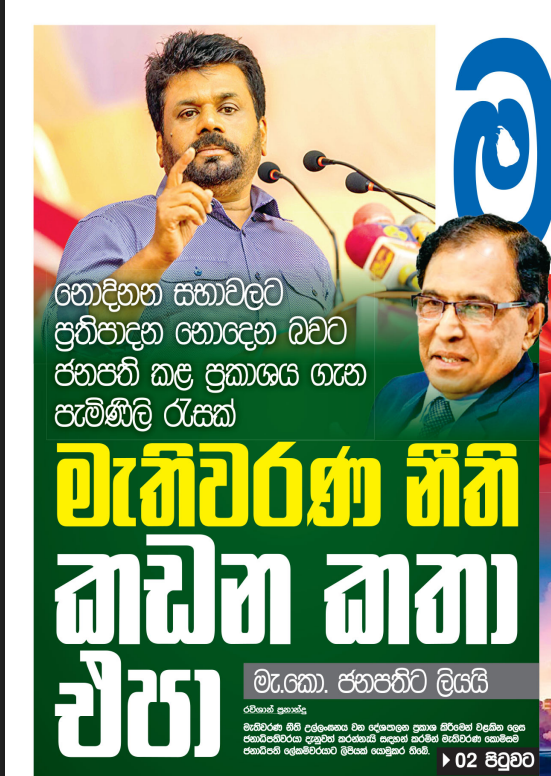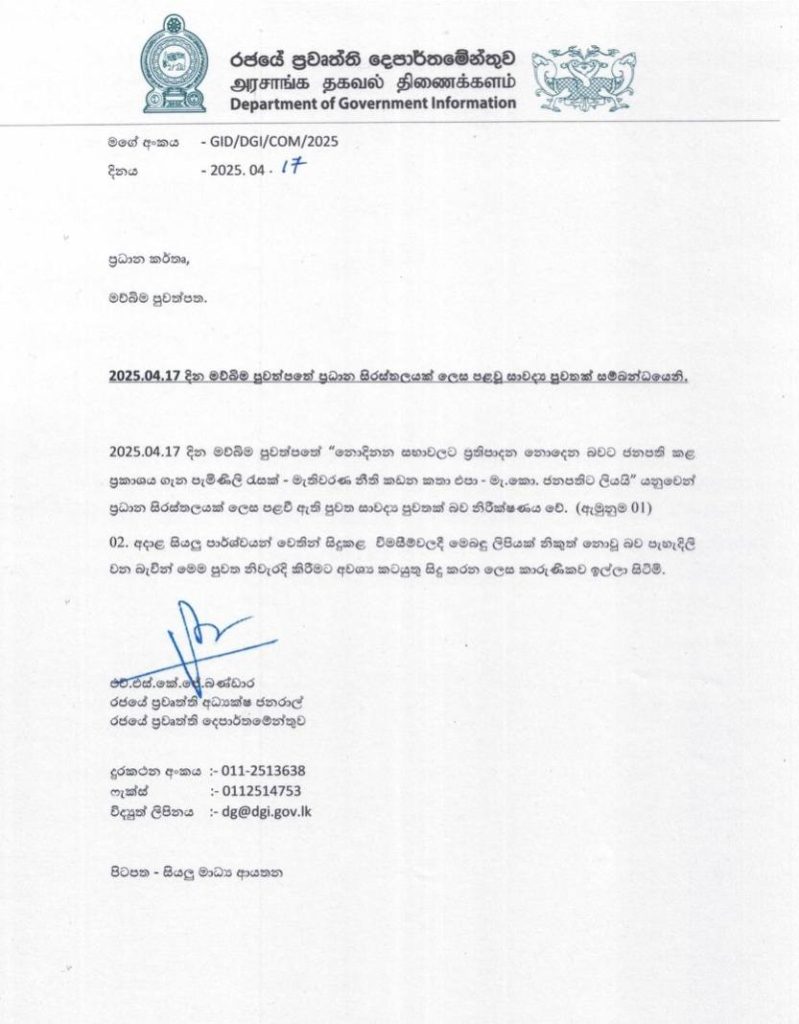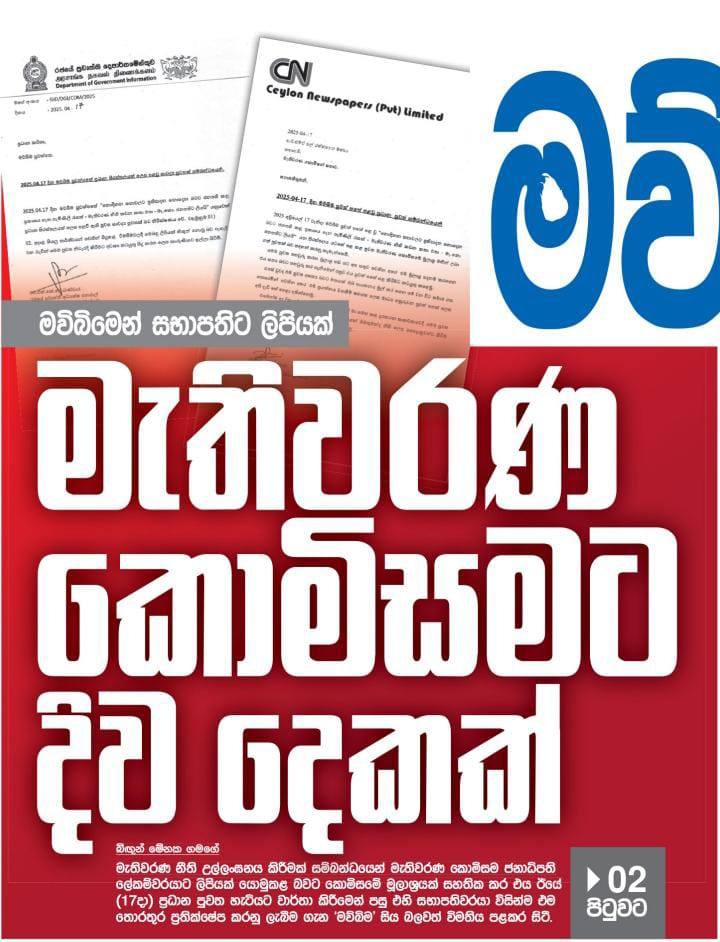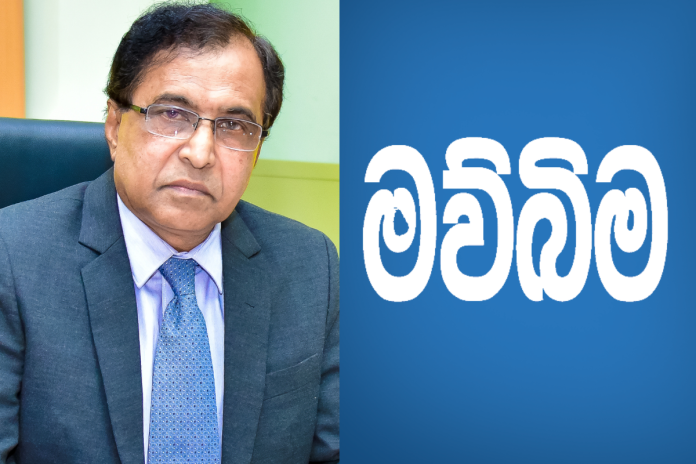The Election Commission has come under public scrutiny following conflicting statements about a letter purportedly sent to the President’s Secretary in response to a complaint against recent remarks made by President Anura Kumara Dissanayake during local government election rallies.
On 17 April, the Mawbima daily newspaper reported that the Election Commission had officially responded to a complaint lodged by the Centre for Monitoring Election Violence (CMEV). The complaint cited potentially unlawful comments made by the President during campaign events in Buttala and Tissamaharama, where he suggested that local councils not won by his party could face delays in receiving government funds. The CMEV argued that such remarks could amount to intimidation and bribery under Sections 82A and 82B of the Local Authorities Elections Ordinance.
Mawbima stated that it had received confirmation from a senior official in the Commission’s legal division that a letter had been sent to the Presidential Secretary, urging the President to refrain from making such statements in the future. The official explained that, due to constitutional immunity under Article 35, any formal correspondence addressing presidential conduct must be directed through the President’s Secretary, the newspaper said.

However, after the story was published, the Chairman of the Election Commission, R.M.A.L. Rathnayake, denied the existence of such a letter, stating that he had neither signed nor approved any communication to that effect.
Further complicating matters, the Department of Government Information issued a press release to all media institutions claiming that the Mawbima article appeared to be false, based on a consultation with the relevant party — the Election Commission. Mawbima, however, countered that the Department had not contacted the newspaper before issuing the press release.

This contradiction prompted a strong response from Mawbima, which defended the accuracy of its reporting. In a follow-up article, the newspaper stated:
“We published this news item after verifying it with officials in the Commission, including the legal division. It was done under the instructions of the Chairman himself. If the Commission later changes its position and calls this report false, then it is not Mawbima that is lying—it is the Commission.”
The paper further emphasised that it had not fabricated information and would not retract the story:
“We have not concocted this story. We have no reason to. If the Chairman now says no such letter was sent, he should explain what prompted him to instruct the legal division to brief journalists on this matter.”
Mawbima also questioned why the Department of Government Information had issued a statement on a matter that should have been addressed directly by the Election Commission — an independent body.

In its original complaint, the CMEV warned that the President’s remarks could create an unequal electoral environment and undermine voters’ rights to make a free and fair choice. The organisation stated that repeated comments of this nature risk creating a chilling effect and could be construed as bribes or threats intended to influence voter behaviour.
As of now, the Election Commission has not issued an official clarification regarding the news published by Mawbima.




